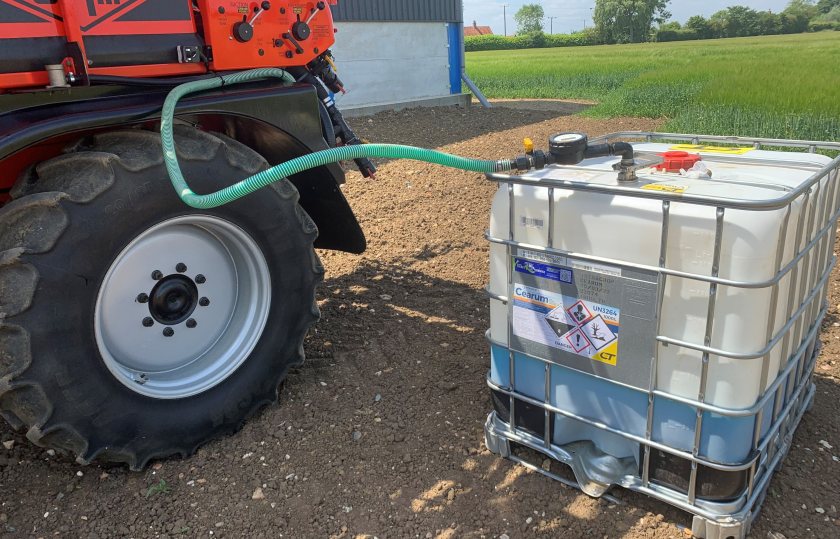
Applications are now open for this year’s round of Severn Trent’s Environmental Protection Scheme (STEPS), offering up to £30,000 for farms to invest in projects that improve water quality.
The grant scheme partners with farmers and landowners across the water company's 48 priority catchments.
To broaden its outreach, this year match funding is available for Closed Transfer Systems (CTS), which enable clean and safe chemical transfer to and from sprayers.
CTS are an alternative for pesticide management, particularly if farming businesses cannot accommodate a full-size pesticide wash down area.
A range of biodiversity funding is also now available, with a focus on helping farmers to improve biodiversity and protect natural habitats.
With a shorter application window, this funding can be applied for until 31 October, with the main STEPS window closing on 31 December.
Dr Alex Cooke, principal catchment management scientist at Severn Trent, explained that both elements of the STEPS scheme provided flexible funding for a wide range of on-farm environmental projects.
She said: “The main STEPS match funding is available to those in priority catchments to address issues such as nitrates, pesticides and cryptosporidium reaching watercourses and help to keep our rivers healthy."
Farmers can choose from an array of funded options, but to ensure applications are competitive, Dr Cooke said she would strongly recommend choosing a priority item specific for the catchment.
For example, this could include the new closed transfer system, pesticide washdown areas, cover crops or livestock fencing.
“‘Farmer innovation’ options are also available. In instances where the main STEPS options aren’t appropriate for your business, these options allow farms to suggest an alternative way to help protect water quality and the environment, that benefits the individual enterprise.
“Spring STEPS works in a similar format to the wider grant programme but offers funding options specifically for biodiversity projects.
"These include diverse herbal leys, wildflower margins, pollinator meadows and birdseed,” Dr Cooke explained.
Since its inception, over 2,000 STEPS grants have been awarded.
